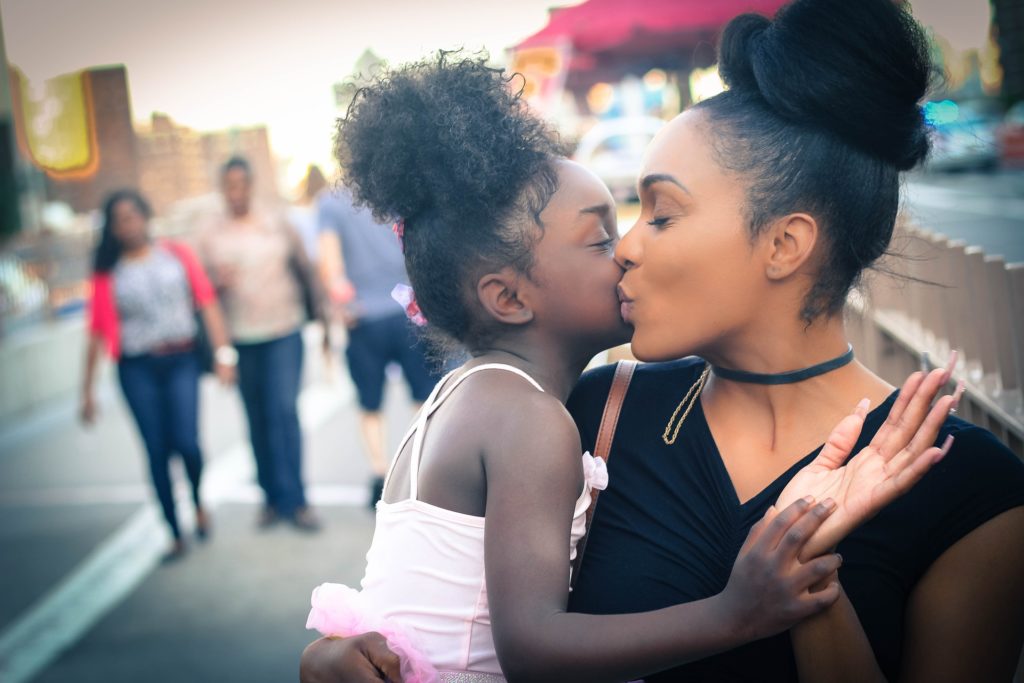- Calls to this hotline are currently being directed to Within Health, Fay or Eating Disorder Solutions
- Representatives are standing by 24/7 to help answer your questions
- All calls are confidential and HIPAA compliant
- There is no obligation or cost to call
- Eating Disorder Hope does not receive any commissions or fees dependent upon which provider you select
- Additional treatment providers are located on our directory or samhsa.gov
Maintaining Your ED Recovery & Helping Your Child in Theirs

The voice of your ED wants you to fall even deeper into a hole of self-loathing, guilt, and shame and may constantly tell you that your child’s disorder is your fault. This voice is entirely false.
There are NO single causes for eating disorders, and it is not your fault. Don’t waste energy fighting yourself and, instead, show yourself unconditional kindness, forgiveness, and compassion and teach your child to do the same.
Model Positive Recovery Behaviors
Parents, undoubtedly, act as models for how their children think and behave.
Being a good role model makes it easier for you to lead yourself and your child toward recovery by demonstrating positive thoughts and behaviors regarding food and weight.
It is very important for both you and your child to adjust how you eat and talk about food. Take care not to mention any previously held “food rules” around your child and work to remove any vocabulary that gives food a moral stance, such as “good,” “bad,” “healthy,” “unhealthy,” or “junk.”
Additionally, adjust your personal eating to nourish yourself based on hunger and satiety. You and your child can work together on relearning how to listen to your bodies, understand your cues for hunger and fullness, and eat accordingly.
It is equally important to be careful how you are treating, and referring to, your own body as well as others. Set an example of how to love yourself and your body unconditionally.
Have Your Own Space
Sharing the experience of an eating disorder does not mean that you and your child have to be one another’s sole support throughout recovery. It is important that you both have separate support networks.
It is expected for you to have bad days throughout recovery. In those moments, it is natural to feel exasperated and to think “I don’t know if I can do this.” However, saying these things in front of your struggling child may be disheartening and damaging to them and their recovery.
Perfection is not expected from you, and letting your child know that it is okay to have weak moments can be helpful, but, it is better for you, and your child, if you go to someone else in these frustrating moments.
Your child also will also need their own space and support to process and work through their experience. Giving them that space will help them to strengthen their recovery while knowing you are there for support when they need it.
Consider Family-Based Treatment
There may be times when you are frustrated with one another or finding it difficult to travel the road to recovery at the same time.
 Having an appointed time and place to discuss your experiences with a therapist can help keep your relationship honest and encouraging as you both navigate recovery.
Having an appointed time and place to discuss your experiences with a therapist can help keep your relationship honest and encouraging as you both navigate recovery.
Family-Based Therapy, also known as the Maudsley Approach, places heavy emphasis on the family unit and utilizes this to promote recovery. This method has shown to be incredibly successful, with 50-60% of patients fully recovering after one-year [1].
This can be a challenging scenario but remember that your child sees the resilience and strength you are channeling into your recovery and is learning to do the same!
 About the Author: Margot Rittenhouse is a therapist who is passionate about providing mental health support to all in need and has worked with clients with substance abuse issues, eating disorders, domestic violence victims and offenders, and severely mentally ill youth.
About the Author: Margot Rittenhouse is a therapist who is passionate about providing mental health support to all in need and has worked with clients with substance abuse issues, eating disorders, domestic violence victims and offenders, and severely mentally ill youth.
As a freelance writer for Eating Disorder and Addiction Hope and a mentor with MentorConnect, Margot is a passionate eating disorder advocate, committed to de-stigmatizing these illnesses while showing support for those struggling through mentoring, writing, and volunteering. Margot has a Master’s of Science in Clinical Mental Health Counseling from Johns Hopkins University.
References:
[1] Bass, P. F. (2015). Family-based therapy for eating disorders. Contemporary Pediatrics. 32:9, 27-30.
The opinions and views of our guest contributors are shared to provide a broad perspective of eating disorders. These are not necessarily the views of Eating Disorder Hope, but an effort to offer discussion of various issues by different concerned individuals.
We at Eating Disorder Hope understand that eating disorders result from a combination of environmental and genetic factors. If you or a loved one are suffering from an eating disorder, please know that there is hope for you, and seek immediate professional help.
Published on October 9, 2017.
Reviewed By: Jacquelyn Ekern, MS, LPC on October 9, 2017.
Published on EatingDisorderHope.com

The EatingDisorderHope.com editorial team comprises experienced writers, editors, and medical reviewers specializing in eating disorders, treatment, and mental and behavioral health.

